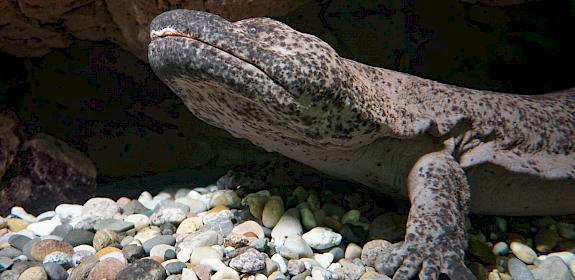
Nansei islands Reptiles and amphibians endemic to Japan's Nansei Islands (Japanese)
- »
- Publications »
- Reports »
- Reptiles and amphibians endemic to Japan's Nansei Islands (Japanese)
Published 23 May 2018
Reptiles and amphibians endemic to Japan’s Nansei Islands threatened by pet trade
Tokyo, Japan 23rd May 2018—many species of rare reptiles and amphibians found only in Japan’s Nansei Islands are actively traded in both domestic and international pet markets, a new study by TRAFFIC has revealed.
Reptiles and amphibians endemic to Japan's Nansei Islands (Japanese)
Report author(s):
若尾 慶子
Publication date:
May 2018
key findings
With parts of the Nansei Islands proposed for Japan’s next natural World Heritage site, enhanced monitoring and regulations are urgently needed to protect the unique island biodiversity conclude the report’s authors.
The Nansei Islands consist of island groups situated in the southeastern end of Japan in two provinces—Kagoshima and Okinawa. Like many island ecosystems around the world, the Nansei Islands harbour many unique endemic species that are faced with a suite of threats from development to invasive species.
Trade as exotic pets was identified as a particular threat to a wide-range of the endemic reptiles and amphibians from the Nansei Islands, according to the study which was published in Japanese.
According to the report, some 37 (55%) of the 67 species and subspecies endemic to the Nansei Islands are traded as pets in domestic or international markets.
Of the 37, some 16 are considered nationally threatened (either Critically Endangered, Endangered, or Vulnerable) on the Japanese Red List of threatened species. Furthermore, capture and/or trade of 15 of them is prohibited by national and/or local regulations.
Species observed in online markets in Europe and/or the USA included Toyama’s Cave Gecko Goniurosaurus toyamai and Yamashina’s Cave Gecko Goniurosaurus yamashinae, both are listed as Critically Endangered in the Japanese Red List. Their respective geographic ranges are restricted to single islands a mere 60 km2 and 20 km2 in size.
The study recommends that Goniurosaurus spp. endemic to the Nansei Islands as well as the Critically Endangered, restricted range, endemic Miyako Grass Lizard Takydromus toyamai should be urgently listed by Japan in Appendix III of CITES*, considering these species’ national protected status and the evidence of international trade.
Other regulatory gaps identified in the study pertain to the lack of national-level protection for many traded species.
Sakishima Grass Lizards Takydromus dorsalis and Green Grass Lizards Takydromus smaragdinus, for example, were found to be heavily traded in international markets, but neither their harvest nor trade in them is controlled by national legislation.
While some of the Nansei Islands’ endemics are partially protected by prefectural or municipal ordinances, the active trade observed suggests that much more comprehensive regulations are necessary at both national and international levels
TRAFFIC’s Kay Wakao, author of the study
“We also believe enhanced awareness and involvement of the local communities are essential to monitor and prevent illegal capture and trade.”
The proposal by the Japanese government to register parts of the Nansei Islands as a World Heritage site was given a yellow light by the UNESCO Advisory Body earlier this month to meet concerns over ecosystem sustainability.
Globally, illegal wildlife trade from World Heritage sites is also a growing concern. A report by WWF published in 2017 estimated illegal harvest of CITES-listed species occurs in 45% of natural World Heritage sites worldwide.
55%
of the 67 species and subspecies endemic to the Nansei Islands are traded as pets
16
of these are considered nationally threatened
capture/trade
of 15 of these is prohibited by national and/or local regulations



